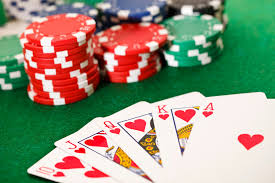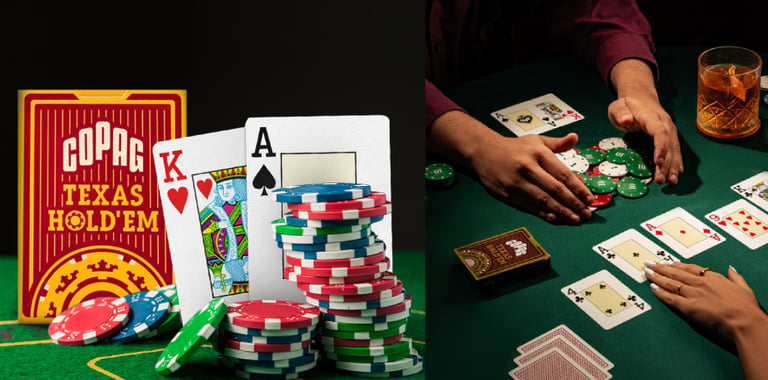“Poker Guide 2025 – Rules, Hands, Strategies & Winning Tips for Beginners”
“Master the game of poker! Learn hand rankings, strategies, and pro tips to win big. Perfect guide for beginners and casino enthusiasts in 2025.”
CASINO GAMES
9/3/20254 min read
Poker: The Ultimate Guide to Rules, Variants, and Winning Strategies
Poker is more than just a casino game—it’s a blend of strategy, skill, psychology, and luck that has captivated players for centuries. From smoky backroom games to glamorous televised tournaments like the World Series of Poker (WSOP), poker has become a global phenomenon.
Whether you’re a beginner curious about Texas Hold’em or a seasoned player looking for strategy tips, this guide will cover everything you need to know about poker—its history, rules, popular variants, strategies, and pro-level tips to elevate your game.
🃏 The History of Poker
Poker’s exact origins are debated, but most historians agree it evolved from various card games played in Europe and Asia. By the early 1800s, poker as we know it was popular on Mississippi riverboats. Over time, it spread across the U.S. and became a cornerstone of casinos and tournaments.
The launch of televised poker in the 2000s, combined with the online poker boom, transformed it into a multi-billion-dollar industry with millions of players worldwide.
🎮 How to Play Poker: The Basics
While poker has many variants, most share the same core principles:
The Goal:
Build the best five-card hand or convince others to fold using strategic betting.Card Rankings:
Poker hand rankings (from strongest to weakest):Royal Flush (A♠ K♠ Q♠ J♠ 10♠)
Straight Flush (Five cards in sequence, same suit)
Four of a Kind
Full House (Three of a kind + a pair)
Flush (Five cards, same suit)
Straight (Five cards in sequence)
Three of a Kind
Two Pair
One Pair
High Card
Gameplay Flow:
Players place blinds or antes (forced bets).
Cards are dealt face down (hole cards).
Betting rounds begin, with players calling, raising, or folding.
Community cards are revealed (in games like Texas Hold’em).
The best five-card hand wins the pot.
🔑 Types of Poker
1. Texas Hold’em
The most popular poker game worldwide. Each player gets two hole cards, and five community cards are dealt face-up. The best five-card hand wins.
2. Omaha
Similar to Texas Hold’em but with four hole cards instead of two. Players must use exactly two hole cards and three community cards.
3. Seven-Card Stud
A classic version with no community cards. Players receive a mix of face-up and face-down cards over multiple rounds.
4. Five-Card Draw
The traditional poker game where players get five cards and can exchange some for new ones.
5. Short Deck Hold’em
Played with a 36-card deck (cards below six removed), changing hand rankings and odds.
🎯 Poker Table Setup
Poker is usually played at a round or oval table with up to 10 players. A dealer button moves clockwise around the table each hand, and players to the left of the dealer post small blind and big blind bets to start the action.
💡 Basic Poker Strategy for Beginners
Poker isn’t just about cards—it’s a game of math and psychology. Here are some essential beginner tips:
Start Tight, Then Loosen Up
Play strong hands early and expand your range as you gain confidence.Learn Position
Being “in position” (acting later in a betting round) gives you an advantage because you see opponents’ moves first.Don’t Bluff Too Much
Beginners often over-bluff. Use bluffs sparingly and strategically.Know the Odds
Learn pot odds and hand probabilities to make smarter bets.Bankroll Management
Only play stakes you can afford and set aside a dedicated poker bankroll.
🧠 The Psychology of Poker
Poker is a mind game as much as a card game. Reading opponents’ behavior—called “tells”—is key:
Physical tells: Nervous fidgeting, shaky hands, or sudden silence.
Betting patterns: Overly aggressive bets may indicate confidence; sudden small bets may signal weakness.
Online tells: Bet timing and chat behavior.
Mastering poker psychology is what separates pros from amateurs.
🔢 Understanding Poker Odds
Poker is a game of probability. For example, in Texas Hold’em:
Odds of being dealt pocket aces: 1 in 221 hands.
Odds of hitting a flush draw on the turn and river: ~35%.
Odds of flopping a set with a pocket pair: ~12%.
Knowing these numbers helps you make decisions based on math rather than emotion.
🏦 Betting Structures
Poker games can have different betting styles:
No-Limit: Bet any amount of chips at any time (common in Texas Hold’em).
Pot-Limit: You can bet up to the size of the pot.
Fixed-Limit: Bet sizes are fixed and structured.
Spread-Limit: Bet within a specific range.
No-Limit poker is the most popular because of its drama and big pots.
🎲 Poker Variants You Should Try
Poker isn’t just Texas Hold’em. Here are some other fun versions:
Pineapple: Similar to Hold’em but with three hole cards.
Badugi: A draw poker variant from Asia.
Razz: A lowball game where the worst hand wins.
HORSE: A mixed-game format rotating between Hold’em, Omaha, Razz, Stud, and Eight-or-Better.
🧩 Advanced Poker Strategies
Once you’re comfortable with poker basics, try these pro-level techniques:
1. Hand Reading
Guess your opponent’s possible holdings based on betting behavior and table position.
2. Aggressive Play
Strong, aggressive betting keeps pressure on opponents, making them fold weaker hands.
3. Semi-Bluffing
Bluff with a drawing hand, giving you two ways to win—opponents fold, or you hit your draw.
4. Table Image
Cultivate a table persona (tight or aggressive) to manipulate opponents’ decisions.
5. Exploit Weak Players
Pay attention to recreational players’ mistakes and adjust your strategy.
🎥 Poker in Popular Culture
Movies like Rounders and shows like High Stakes Poker helped popularize the game. The “Moneymaker Effect” in 2003—when amateur Chris Moneymaker won the WSOP Main Event—sparked the online poker boom and made poker a global craze.
🏅 Professional Poker
Poker isn’t just a hobby—many players make a living from it. The best-known tournament is the World Series of Poker (WSOP), where players compete for millions. Famous pros like Phil Ivey, Daniel Negreanu, and Doyle Brunson have become legends of the game.
🔒 Responsible Poker Playing
Poker can be thrilling, but always play responsibly:
Set time and spending limits.
Take breaks to avoid tilt (emotional decision-making).
Don’t gamble with money you can’t afford to lose.
If poker stops being fun, take a step back.
📝 Final Thoughts
Poker isn’t just another casino game—it’s a battle of wits, nerve, and strategy. With a mix of math, psychology, and creativity, players can consistently gain an edge.
Whether you’re playing a casual home game, grinding online tournaments, or chasing poker glory in Las Vegas, the game offers endless excitement and learning opportunities. Start small, study strategy, and most importantly, enjoy the thrill of the game.




© 2025. All rights reserved.
Follow us
Quick Links


